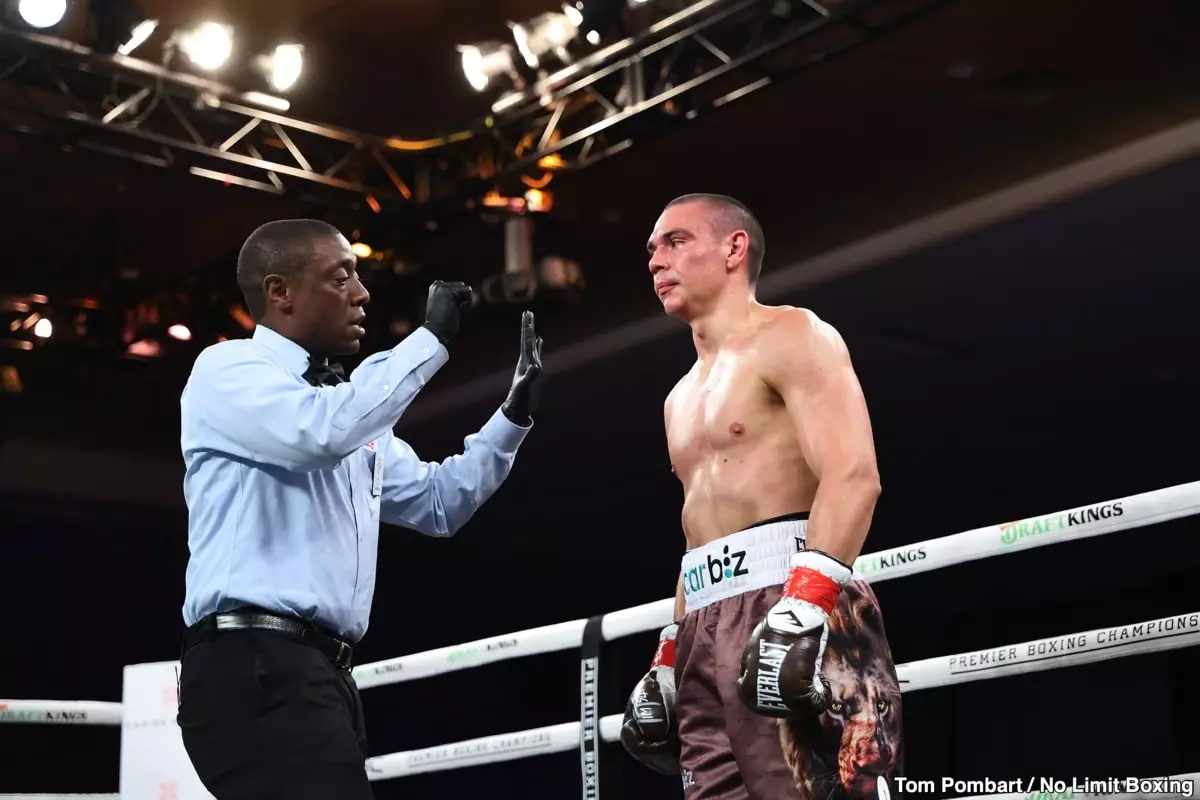In the world of boxing, the immediate aftermath of a loss can be brutal. The story of Tim Tszyu, who suffered his second consecutive defeat to Bakhram Murtazaliev in a third-round knockout, encapsulates the harsh treatment athletes often endure from fans and media. Chris Algieri, a seasoned figure in the boxing domain, is speaking out, highlighting the hasty judgments and unreal expectations placed upon fighters in this high-stakes arena.
The boxing community frequently witnesses what Chris Algieri describes as a “throwaway” mentality when a fighter experiences consecutive losses. Following Tszyu’s unfortunate defeat, the narrative quickly shifted towards questioning his capabilities, with fans labeling him as “washed up.” This unforgiving nature is detrimental not just to the fighters but to the sport as a whole. Audiences start settling for mismatches, lured more by the idea of undefeated records than the allure of competitive bouts. This leads to a stagnation in the sport, with networks losing interest and promoters seeking safer bets. The broader consequence is a cycle of mediocrity where fighters avoid risks, perpetuating a pattern where only the highest-caliber matchups hold any interest.
Tszyu, with a record of 24 wins and 2 losses, found himself in a bout that many other fighters had previously avoided. Algieri’s remarks underline the troubling trend of fighters being shunned after a lapse in performance, despite the inherent risks involved in their decision-making. It’s crucial to acknowledge that Tszyu’s readiness to face a formidable opponent like Murtazaliev should be celebrated rather than criticized. Unfortunately, the reality is a stark withdrawal of support following a loss, leaving fighters to navigate their careers against a backdrop of disillusionment from fans and pundits alike.
Algieri articulates a sentiment felt by many in the boxing community regarding the obsession with fighters maintaining an undefeated record. In this era, there seems to be an implicit expectation for professional boxers to operate flawlessly, a proposition that is as impractical as it is unreasonable. Every fighter confronts unique challenges in the ring, from injuries to unexpected opponent strategies. Tszyu’s encounters undeniably reflect this; in his fight against Murtazaliev, things took a dramatic turn when an accidental elbow led to a significant cut above Tszyu’s eye, hindering his performance for a substantial portion of the fight.
This unfortunate incident raises a critical point—the unpredictable nature of boxing. Even fighters who are ostensibly at the top of their game can experience setbacks due to circumstantial mishaps. Such events should not define a fighter’s career or legacy. A broader acceptance of the complexities inherent in sports competition would be beneficial to both athletes and fans alike. There is a need for a paradigm shift within the boxing community to recognize that losses do not equate to a lack of talent or competitiveness—sometimes they simply reflect the harsh realities of the sport.
Despite the current skepticism surrounding Tszyu, Algieri asserts that it is still within his reach to conquer the opinions of disillusioned fans. To regain support, Tszyu must prove himself against elite opposition rather than settling for less challenging fights, particularly as he navigates the landscape following consequential defeats. The path to rehabilitation can be more difficult when the audience has become cynical, often preferring to praise those who opt for safer matchups rather than those willing to risk their records.
The narrative needs to shift. Tszyu’s willingness to engage with high-stakes matches should be seen as a commendable choice. He chose to confront one of the top contenders in his division as a mark of his ambition, and although he fell short, that decision reflects character and determination. Algieri suggests that the perspective of promoters and fans alike should evolve to recognize fighters’ bold choices rather than turning their backs after a couple of missteps.
Ultimately, the treatment of fighters like Tszyu reveals a broader dilemma within the sport of boxing. There exists a tension between maintaining an impressive record and the pursuit of meaningful competition. The path towards greatness often involves risks and, at times, setbacks that can lead to personal and public scrutiny. Boxing has always thrived on narratives of resilience and redemption, and it is essential for fans, fighters, and promoters to understand and embrace this reality in order to foster a more supportive environment for athletes.
The case of Tim Tszyu serves as an alarming reminder of the often harsh and rapid judgments that fighters face. The boxing community must strive to cultivate a culture that values bravery and competitiveness over mere record preservation, ensuring that the sport continues to thrive and evolve in an authentic, engaging manner.

